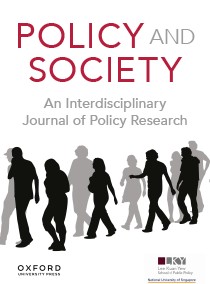政策排序可增加公众对雄心勃勃的气候政策的支持
IF 6.1
1区 社会学
Q1 POLITICAL SCIENCE
引用次数: 0
摘要
公众对雄心勃勃的气候政策和对选民有直接成本的碳价格的支持可能取决于政策排序。政策排序理论认为,战略性地将政策排序为最初能带来利益的序列,可随后增加对更高碳价格的支持。然而,关于排序对公众支持的影响,目前还缺乏系统的定量证据。我们就战略性政策排序影响公众对气候政策支持的机制提供了新的理论和经验见解。我们利用地理空间数据,并在 2021 年 6 月对《减少温室气体排放联邦法案》修正案进行民众投票之前,对瑞士选民进行了一次具有代表性的联合实验,从而得出了这些见解。我们的证据表明,先前政策所带来的利益的可感知有效性与各行业公众对更高碳价格的更多支持有关。此外,我们还发现,低排放替代品的更多机会结构--如更高的电动汽车充电站密度--与公众对碳价格的更多支持相关,而碳价格正是前者带来的实质性好处。我们的研究结果还表明,对先前气候政策的积极政策认知与支持率的提高有关,特别是在保守派选民和那些不把气候变化视为突出问题的选民中。因此,战略性的政策排序可能是扩大公众对雄心勃勃的气候政策支持的有效策略。本文章由计算机程序翻译,如有差异,请以英文原文为准。
Policy sequencing can increase public support for ambitious climate policy
Public support for ambitious climate policies and carbon prices that have direct costs for voters may depend on policy sequencing. Policy sequencing theory suggests that the strategic ordering of policies into sequences that initially create benefits can subsequently increase support for higher carbon prices. However, systematic quantitative evidence about the effects of sequencing on public support is lacking. We provide novel theoretical and empirical insights on the mechanisms through which strategic policy sequencing affects public support for climate policies. We generated these insights using geospatial data and a representative conjoint experiment with Swiss voters conducted just before the popular vote on an amendment to the Federal Act on the Reduction of Greenhouse Gas Emissions in June 2021. Our evidence shows that the perceived effectiveness of prior policy-induced benefits is related to more public support for higher carbon prices across sectors. Moreover, we find that more opportunity structures for low-emission alternatives—like higher EV charging station density—are associated with increased public support for carbon prices in the sector where the former material benefits occur. Our results also imply that positive policy perceptions of prior climate policies are related to increased support, particularly among conservative voters and those who do not regard climate change as a salient issue. Thus, strategic policy sequencing could be an effective strategy for broadening public support for ambitious climate policies.
求助全文
通过发布文献求助,成功后即可免费获取论文全文。
去求助
来源期刊

Policy and Society
Multiple-
CiteScore
18.00
自引率
6.50%
发文量
43
审稿时长
30 weeks
期刊介绍:
Policy and Society is a prominent international open-access journal publishing peer-reviewed research on critical issues in policy theory and practice across local, national, and international levels. The journal seeks to comprehend the origin, functioning, and implications of policies within broader political, social, and economic contexts. It publishes themed issues regularly and, starting in 2023, will also feature non-themed individual submissions.
 求助内容:
求助内容: 应助结果提醒方式:
应助结果提醒方式:


